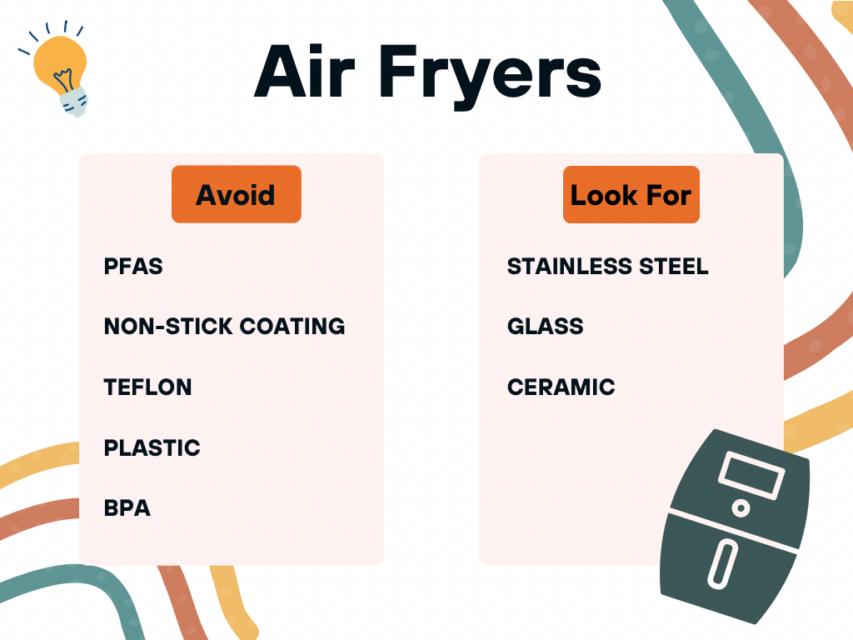
Air fryers have grown in popularity over the last few years, however, recent information about certain chemicals found in some air fryer brands reveals there may be a health risk.
Several air fryers have a non-stick coating that contains chemical polyfluorinated molecules, better known as PFAs and nicknamed “forever chemicals,” due to the decades they take to break down in the environment, as explained by Joseph G. Allen, associate professor at Harvard T.H. Chan School of Public Health and faculty advisor to the Harvard Healthier Building Materials Academy.
The Centers for Disease Control and Prevention revealed in a 2019 press release that PFAS found in clothing, cookware and household items have been linked to infertility, weakened immune systems, impaired brain function, hormone disruption and more.
Several air fryers and small appliances still contain PFAS, including a model from DASH which is listed on a review of top air fryers for college students. But some companies, such as Ninja, specify that the basket materials in certain models are “PTFE/PFOA-free” according to its website.
College student, Alyssa Bell, BYU cell biology major from California, is a frequent air fryer user.
“I like how quick it is and how it’s more convenient when I am on the go. Everything is done in 20 minutes instead of waiting for my oven to heat up,” Bell said.
Briell Mitchell, a cell biology and physiology student from Washington, said having an air fryer has made her a better cook. Bell and Mitchell commented on the convenience, time-saving and restaurant-level crispy texture air fryers bring, helping them cook more at home and eat out less.
When Bell purchased her air fryer, she was aware of the conversation about air fryers being a healthier option but she was not motivated to buy one because it was healthier. For college students with a limited budget and busy schedules, the healthiest option is not always the top priority or on their radar.
Bella Hussein, a philosophy major from Utah, said she was aware of some of the conversation about the health consequences, but she cannot afford to worry about it.
“I can’t afford stuff and if it has (harmful chemicals) in it there’s nothing else I can do,” Hussein said.
According to registered dietician nutritionist Marissa Winters, air fryers could have a positive impact on health, causing people to consume less oil and less fried foods.
The good news for students who have made the air fryer a kitchen staple, there are better options that are free of PFAS and other harmful chemicals found in plastics such as bisphenol A — options that will not break the bank.
Consumers can look out for words such as non-stick, Teflon or plastic to avoid PFAS. While an air fryer option may specify PFAS- or BPA-free, this model may still be made with plastic containing other substances similar to PFAS or BPA. Air fryers made with stainless steel, glass or ceramic are shown to be the safest option.
While they cannot be avoided entirely, eliminating PFAS from non-stick cookware, such as air fryers, is a way to limit exposure according to the CDC.




